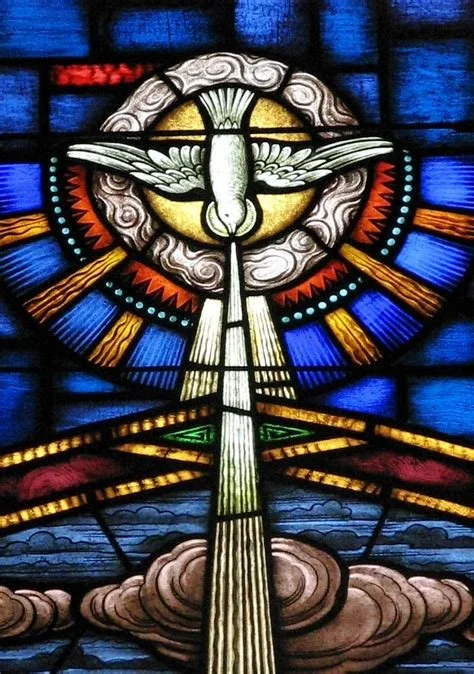
History & Beliefs
A Brief History
Seventh Baptist Church gathers for Sunday School in 1916.
On July 15, 1911, a group of Baptists agreed to sponsor a tent revival meeting at the corner of Springfield Avenue and Commercial Street. On August 14, 1911, these believers met in the tent after the revival meeting and organized as Seventh Baptist Church and became a cooperating church with Greene County Baptist Association.
Since then, the church has grown considerably spiritually and in number, adopted a church covenant joining our members in union together, understood and adopted a more reformed soteriological view, and moved to a post-Acts 6 church polity where the office of elder was established alongside the existing office of deacon. In 2021, the church adopted an elder-drafted, congregational-approved church confession of faith that serves as our church’s essential doctrinal statement. Today, the church stands as a well-established Reformed Baptist church in the Springfield community.
For a more comprehensive history, please click the link below.
Boulevard Confession of Faith
-
This confession is based on the New Hampshire Confession of Faith and has been modified to our specific convictions. Its intent is to provide a baseline of beliefs so that all members know in general what our church believes and teaches. This confession does not cover all doctrinal matters. As long as a person can, in good conscience, find themselves in substantial agreement with this confession, they may be received into membership. Charity will be granted to allow for growth in understanding and disagreements that are permissible within the bounds of historical Baptist doctrine. This confession along with “The Baptist Faith and Message 2000” are the standards for leadership and teaching in the church. While confessions should never be altered or amended suddenly, if such a need should arise, the Elders of Boulevard Baptist Church and the church may amend this confession according to the church bylaws.
-
We believe the Bible (The Old and New Testament) is the written word of God, verbally and plenarily inspired, inerrant and infallible in the original manuscripts. The authority of Scripture and its sufficiency extends to the entire Bible and reveals the principles by which God will execute judgment. The Scriptures are God’s truth and are totally sufficient and trustworthy in all matters of faith and practice. They are the supreme standard by which all human conduct, creeds, and opinions should be tried for all time.
2 Timothy 3:16-17; 2 Timothy 3:15; Proverbs 30:5-6; Romans 2:12; Philippians 3:16; 1 John 4:1 -
We believe that there is one, and only one living and true God. He is an infinite intelligent Spirit, the ‘ex nihilo’ (out of nothing) Creator and sovereign Ruler of heaven and earth. He is inexpressibly glorious in holiness, and worthy of all possible honor, confidence and love. We further believe in the Trinity and unity of the Godhead. God is three persons: the Father, the Son, and the Holy Spirit; equal in every divine perfection and executing distinct but harmonious offices in the great work of redemption.
John 4:24; Psalms 83:18; Hebrews 3:4; Romans 1:20; Jeremiah 10:10; Exodus 15:11; Psalms 147:5; Isaiah 6:3; 1 Peter. 1:15-16; Revelation 4:6-8; Mark 12:30; Revelation 4:11; Matthew 10:37; Jeremiah 2:12-13; Matthew 28:19; John 15:26; 1 Corinthians 12:4-6; 1 John 5:7; John 10:30; John 5:17; John 14:23; John 17:5 & 10; Acts 5:3-4; 1 Corinthians 2:10-11; Philippians 2:5-6; Ephesians 2:18; 2 Corinthians 13:14; Revelation 1:4-5 -
We believe the first man, Adam, as well as the first woman, Eve, were historically and specially created by God in holiness, under the law of their Maker. The gift of biological gender is thus part of the goodness of God’s creation. By voluntary transgression, they fell from that perfect, holy, and happy state. Consequently, all mankind are now sinners, not by constraint but choice. By nature, man is utterly void of the holiness required by the commandment of God, positively inclined to evil, and is therefore under just condemnation to eternal ruin, without defense or excuse.
Genesis 1:27; Genesis 1:31; Ecclesiastes 7:29; Acts 17:26-29; Genesis 2:16-17; Genesis 3:6-24; Romans 5:12; Romans 5:15-19; Psalms 51:5; Romans 8:7; Isaiah 53:6; Genesis 6:12; Romans 3:9-18; Ephesians 2:1-3; Romans 1:18,32; Romans 2:1-16; Galatians 3:10; Matthew 20:15; Ezekiel 18:19-20; Romans 1:20; Romans 3:19; Galatians 3:22 -
We believe that the salvation of sinners is wholly of grace through the Mediatorial offices of the Son of God who by the appointment of the Father freely took upon Him our nature, yet without sin. He honored the divine law by His personal obedience, and by His death made a full atonement for our sins. Having risen from the dead and ascended, He is now enthroned in heaven. By uniting in His glorified person the greatest sympathies with divine perfections, He is in every way qualified to be a suitable, compassionate, and all-sufficient Savior.
Ephesians 2:3; Matthew 18:11; 1 John 4:10; 1 Corinthians 3:5-7; Acts 15:11; John 3:16; John 1:1-14; Hebrews 4:14; Hebrews 12:24; Philippians 2:9 & 14; 2 Corinthians 5:21; Isaiah 42:21; Philippians 2:8; Galatians 4:4-5; Romans 3:21; Isaiah 53:4-5; Matthew 20:28; Romans 4:25; Romans 3:21-26; 1 John 2:3; 1 Corinthians 15:1-3; Hebrews 9:13-15; Hebrews 1:8; Hebrews 1:3; Colossians 3:1-4; Hebrews 7:25; Colossians 2:18; Hebrews 7:26; Psalms 89:19; Psalms 34 -
We believe that justification is the great gospel blessing which Christ secures for those who believe in Him. Justification includes the pardon of sin and the promise of eternal life on principles of righteousness, bestowed not in consideration of any works of righteousness which we have done, but solely through faith in the Redeemer’s blood. Through faith, His perfect righteousness is freely imputed to us by God, which brings us into a state of peace and favor with Him and secures every other blessing for time and eternity.
John 1:16; Ephesians 3:8; Acts 13:39; Isaiah 53:11-12; Romans 5:1-2; Romans 5:9; Zechariah 13:1; Matthew 9:6; Acts 10:43; Romans 5:17; Titus 3:5-7; 1 Peter 3:7; 1 John 2:25; Romans 5:21; Romans 4:4-5; Romans 6:23; Philippians 3:7-9; Romans 5:19; Romans 3:24-26; Romans 4:23-25; 1 John 2:12; Romans 5:3; Romans 5:11; 1 Corinthians 1:30-31; Matthew 6:33; I Timothy 4:8 -
We believe that those who have been justified freely by faith in Christ alone, in and for the sake of Jesus Christ, are partakers of the grace of adoption. They enjoy the liberties and privileges of children of God and have His name put on them. They receive the spirit of adoption and are granted access to the throne of grace. They are enabled to boldly cry “Abba, Father.” Further, we believe they are shown mercy, protected, provided for, and disciplined by Him as Father, yet never abandoned. As heirs, they inherit the promises of everlasting salvation.
Ephesians 1:5; Galatians 4:4–5; John 1:12; Romans 8:17; 2 Corinthians 6:18; Revelation 3:12; Romans 8:15; Galatians 4:6; Ephesians 2:18; Psalms 103:13; Proverbs 14:26; 1 Peter 5:7; Hebrews 12:6; Isaiah 54:8–9; Lamentations 3:31; Ephesians 4:30; Hebrews 1:14; Hebrews 6:12 -
We believe that the blessings of salvation are freely offered to all by the gospel. Further, it is the immediate duty of all to accept them by a repentant and obedient faith, as nothing prevents the salvation of the greatest sinner on earth but his own inherent depravity and voluntary rejection of the gospel. This rejection involves him in a more severe condemnation.
Isaiah 55:1; Revelation 22:17; Romans 16:25-26; Mark 1:15; Romans 1:15-17; John 5:40; Matthew 23:37; Romans 9:32; Proverbs 1:24; Acts 13:46; John 3:19; Matthew 11:20; Luke 10:27; 2 Thessalonians 1:8 -
We believe that in order to be saved, sinners must be regenerated, or born again. Regeneration consists of the enlightening of the mind and is accomplished in a manner above our comprehension by the power of the Holy Spirit, in connection with divine truth. The new birth also secures our immediate voluntary obedience to the gospel. Proper evidence of regeneration appears in the holy fruits of repentance and faith and newness of life.
John 3:3; John 3:6-7; 1 Corinthians3:14; Revelation 14:3; Revelation 21:27; 2 Corinthians 5:17; Ezekiel 36:26; Deuteronomy 30:6; Romans 2:28-29; Romans 5:5; 1 John 4:7; John 3:8; John 1:13; James 1:16-18; 1 Corinthians 1:30; Philippians 2:13; 1 Peter 1:22-25; 1 John 5:1; Ephesians 4:20-24; Colossians 3:9-11; Ephesians 5:9; Romans 8:9; Galatians 5:16-23; Ephesians 3:14-21; Matthew 3:8-10; Matthew 7:20; 1 John 5:4, 18 -
We believe that repentance and faith are sacred duties and also inseparable graces. They are produced in our souls by the regenerating Spirit of God who convinces us of our sin, guilt, danger, and helplessness, and of the way of salvation by Christ. We then turn to God with confession, repentance, and a plea for mercy. At the same time, we trust in the Lord Jesus Christ alone as the all-sufficient Savior.
Mark 1:15; Acts 11:18; Ephesians 2:8; 1 John 5:1; John 16:8; Acts 2:37-38; Acts 16:30-31; Luke 18:13; Luke 15:18-21; James 4:7-10; 2 Corinthians 7:11; I Timothy 1:12-13; Psalms 51; Romans 10:9-11; Acts 3:22-23; Hebrews 4:14; Psalms 2:6; Hebrews 1:8; Hebrews 7:25; 2 Timothy 1:12 -
We believe that election is the eternal purpose of God, according to which he graciously regenerates, sanctifies, and saves sinners. Election is perfectly consistent with the free agency of man and includes all the means necessary to accomplish God’s saving purposes. It is a most glorious display of God’s sovereign goodness, being infinitely free, wise, holy, and unchangeable. Election utterly excludes boasting. It promotes humility, love, prayer, praise, and trust in God, as well as mercy towards others. This grace encourages the greatest possible exercise of human responsibility. Election to salvation is confirmed by its effects in everyone who truly believes the gospel. This grace is the foundation of Christian assurance, and confirming our election deserves our greatest diligence.
2 Timothy 1:8-9; Ephesians 1:3-14; 1 Peter 1:1-2; Romans 11:5-6; John 15:16; 1 John 4:19; 2 Thessalonians 2:13-14; Acts 13:48; John 10:16; Matthew 20:16; Acts 15:14; Exodus 33:18-19; Matthew 20:15; Ephesians 1:11; Romans 9:23-24; Jeremiah 31:3; Romans 11:28-29; James 1:17-18; 2 Timothy 1:9; Romans 11:32-36; 1 Corinthians 1:26-31; Romans 3:27; Romans 4:16; Colossians 3:12; 1 Corinthians 3:5-7; 1 Corinthians 15:10; 1 Peter 5:10; Acts 1:24; 1 Thessalonians 2:13; 1 Peter 2:9; Luke 18:7; John 15:16; 1 Thessalonians 2:12; 2 Timothy 2:10; 1 Corinthians 9:22; Romans 8:28-30; John 6:37-40; 1 Thessalonians 1:4-10; Isaiah 42:16; Romans 11:29; 2 Peter 1:10-11; Philippians 3:12; Hebrews 6:11 -
We believe that sanctification is both an objective status and a process. According to the will of God, by this process, we are made partakers of His holiness. It is a progressive work that is begun in regeneration. This work is carried on in the hearts of believers by the presence and power of the Holy Spirit, the Sealer and Comforter. His appointed means include the Word of God, self-examination, self-denial, watchfulness, prayer and the oversight and fellowship of the visible church.
1 Thessalonians 4:3; 1 Thessalonians 5:23; 2 Corinthians 7:1; 2 Corinthians 13:10; Philippians 3:12-16; 1 John 2:29; Romans 8:5; Ephesians 1:4; Proverbs 4:18; 2 Corinthians 3:18; Hebrews 6:1; 2 Peter 1:5-8; John 3:6; Philippians 1:9-11; Ephesians 1:13-14; Philippians 2:12-13; Ephesians 4:11-12; 1 Peter 2:2; 2 Peter 3:18; 2 Corinthians 13:5; Luke 11:35; Luke 9:23; Matthew 26:41; Ephesians 6:18; Ephesians 4:30 -
We believe that all who have placed their faith in Christ will endure to the end. Their persevering attachment to Christ and attachment to His people are the marks which distinguish them from superficial professors. A special providence watches over their welfare and they are kept by the power of God through faith unto salvation as Christ intercedes for them.
John 8:31; 1 John 2:27-28; 1 John 3:9; 1 John 5:18; 1 John 2:19; John 13:18; Matthew 13:20- 21; John 6:66-69; Job 17:9; Romans 8:28; Matthew 6:30-33; Jeremiah 32:40; Psalms 121:3; Psalms 91:11-12; Philippians 1:6; Philippians 2:13; Jude 24:25; Hebrews 1:14; 2 Kings 6:16; Hebrews 13:5; 1 John 4:4; Hebrews 7:25 -
We believe that a visible church of Christ is a congregation of baptized believers united by covenant in the faith and fellowship of the gospel. Scripture portrays the church as the Bride of Christ. The church ought to observe the ordinances of Christ and be governed by His laws. The church also exercises the gifts, rights, and privileges invested in her by His word. Her only scriptural officers are elders and deacons whose qualifications, claims and duties are defined in Scripture. We believe that all Christians are called to service within the body of Christ, and that God has given to both men and women roles within the Church. We also believe that the office of elder is assigned only to those men who are called of God and affirmed by the church in fulfillment of the biblical teachings.
1 Corinthians 1:1-3; Matthew 18:17; Acts 5:11; Acts 8:1; Acts 11:21-23; 1 Corinthians 4:17; 1 Corinthians 14:23; 3 John 9; I Timothy 3:5; Acts 2:41-42; 2 Corinthians 8:5; Acts 2:47; 1 Corinthians 5:12-13; 1 Corinthians 11:2; 2 Thessalonians 3:6; Romans 16:17-20; 1 Corinthians 11:23-24; Matthew 18:15-20; 1 Corinthians 5:6; 2 Corinthians 2:17; 1 Corinthians 4:17; Matthew 28:20; John 14:15; John 15:12; 1 John 14:21; 1 Thessalonians 4:2; 2 John 6; Galatians 6:2; Ephesians 4:7; 1 Corinthians 14:12; Philippians 1:1; Acts 14:23; Acts 15:22; I Timothy 3; Titus 1 -
We believe that the New Covenant has been established through the redemptive work of Christ, the blessings of which are only received by grace through faith, and that Christ has fulfilled the Old Covenant thereby making it obsolete. God’s final words of revelation, given through Christ and His New Testament apostles and prophets, are the interpretive lens through which the Old Testament must be understood and applied.
Jeremiah 31:31-33; Ezekiel 11:19-20; 36:25-27; 2 Corinthians 3:6; Luke 22:20; Hebrews 7:22; 8:6; 9:11-26; 12:24; 13:20; 1 Corinthians 11:25 Romans 4:1-25; Ephesians 2:8-9; Titus 3:4-7; Hebrews 8:7-13; Deuteronomy 18:15-18; Hebrews 1:1; Matthew 5:17-48; John 13:34-35; Colossians 2:16-17
For more information on New Covenant Theology, click here. -
We believe that Christian baptism is the immersion in water of a believer into the name of the Father, and Son, and Holy Spirit. This symbolizes our union in faith with the crucified, buried and risen Savior. As an act of obedience, this portrays our death to sin and resurrection to a new life. It is prerequisite to the privileges of church membership and to the Lord’s Supper. In observing the Lord’s Supper, by the sacred use of bread and fruit of the vine, the members of the church are celebrating together the sacrificial love of Christ and our hope for His return. This is done in obedience to Christ and is to be preceded by solemn self-examination.
Acts 8:36-39; Matthew 3:5-6; John 3:22-23; John 4:12; Matthew 28:19-20; Mark 16:16; Acts 2:38; Acts 8:12; Acts 16:32-34; Acts 18:8; Acts 10:47-48; Galatians 3:26-28; Romans 6:4; Colossians 2:12; 1 Peter 3:20-21; Acts 22:16; Acts 2:41-42; 1 Corinthians 11:26; Matthew 26:26-29; Mark 14:22-25; Luke 22:14-20; 1 Corinthians 11:28; 1 Corinthians 5:1-8; 1 Corinthians 10:3-32; 1 Corinthians 11:17-32; John 6:26 -
We believe the first day of the week is the Lord’s Day. It is a Christian institution for regular observance. It commemorates the resurrection of Christ from the dead and points to the rest that awaits the people of God. It should include exercises of worship and spiritual devotion, both public and private. Activities on the Lord’s Day should be commensurate with the Christian’s conscience under the lordship of Jesus Christ.
Acts 20:7; Genesis 2:3; Colossians 2:16-17; Mark 2:27; John 20:19; 1 Corinthians 16:1-2; Exodus 20:8; Revelation 1:10; Psalms 118:15, 24; Isaiah 58:13-14; Isaiah 56:2-8; Hebrews 10:24-25; Acts 11:26; Acts 13:44; Leviticus 19:30; Luke 4:16; Acts 17:2-3; Psalms 26:8; Psalms 87:3; Hebrews 4:3-11 -
We believe that civil government is of divine appointment for the interests, flourishing, and good order of human society. Government leaders are to be prayed for, conscientiously honored, and obeyed; except only in things opposed to the will of our Lord Jesus Christ, who is the only Lord of the conscience, and the King of kings.
Romans 13:1-7; Deuteronomy 16:18; 2 Samuel 23:3; Exodus 18:23; Jeremiah 30:21; Matthew 22:21; Titus 3:1; 1 Peter 2:13; I Timothy 2:1-4; Acts 5:29; Matthew 28; Daniel 3:15-18; Daniel 6:7-10; Acts 4:18-20; Matthew 23:10; Romans 14:4; Revelation 19:16; Psalms 72:11; Psalms 2; Romans 14:9-13 -
We believe that the end of the world is approaching. Until that time, the unrepentant dead are held in a place of torment, and persist in animosity towards God, while the justified are kept in the comforting presence of the Lord. We believe that at the Last Day, Christ will descend from heaven and raise the dead from the grave to final judgment. A solemn separation will then take place in which the wicked will be appointed to endless punishment and the righteous to endless joy. This judgment will fix forever the final state of men in heaven or hell, on the principles of the righteousness of God. The righteous will reign with Christ in the new heavens and new earth.
1 Peter 4:7; 1 Corinthians 7:29-31; Hebrews 1:10-12; Matthew 24:35; 1 John 2:17; Matthew 28:20; Matthew 13:39-40; 2 Peter 3:3-13; Acts 1:11; Revelation 1:7; Hebrews 9:28; Acts 3:21; 1 Thessalonians 4:13-18; 1 Thessalonians 5:1-11; Acts 24:15; 1 Corinthians 15:12-58; Luke 14:14; Daniel 12:2; John 5:28-29; John 6:40; John 11:25-26; 2 Timothy 1:10; Acts 10:42; Matthew 13:49; Matthew 13:37-43; Matthew 24:30- 31; Matthew 25:31-46; Revelation 22:11; 1 Corinthians 6:9-10; Mark 9:43-48; 2 Peter 2:9; Jude 7; Philippians 3:19; Romans 6:23; 2 Corinthians 5:10-11; John 4:36; 2 Corinthians 4:18; Romans 3:5-6; 2 Thessalonians 1:6-12: Hebrews 6:1-2; 1 Corinthians 4:5; Acts 17:31; Romans 2:2-16; Revelation 20:11-12; 1 John 2:28; 1 John 4:17; 2 Peter 3:11-12; Revelation 21:1-8, 22-27
Boulevard Church Covenant
-
Having as we trust, been brought by Divine Grace to repent and believe in the Lord Jesus Christ and to give up ourselves to Him, and having been baptized upon our profession of faith, in the name of the Father and of the Son and of the Holy Spirit, we do now, relying on His gracious aid, solemnly and joyfully renew our covenant with each other.
We will work and pray for the unity of the Spirit in the bond of peace.
We will walk together in brotherly love, as becomes the members of a Christian Church; exercise an affectionate care and watchfulness over each other; and faithfully admonish and entreat one another as occasion may require.
We will not forsake the assembling of ourselves together, nor neglect to pray for ourselves and others.
We will endeavor to bring up such as may at any time be under our care, in the nurture and admonition of the Lord, and by a pure and loving example to seek the salvation of our family and friends.
We will rejoice at each other’s happiness, and endeavor with tenderness and sympathy to bear each other’s burdens and sorrows.
We will seek, by Divine aid, to live carefully in the world, denying ungodliness and worldly lusts, and remembering that, as we have been voluntarily buried by baptism and raised again from the symbolic grave, so there is on us a special obligation now to lead a new and holy life.
We will work together for the continuance of a faithful evangelical ministry in this church, as we sustain its worship, ordinances, discipline, and doctrines. We will contribute cheerfully and regularly to the support of the ministry, the expenses of the church, the relief of the poor, and the spread of the gospel through all nations.
We will, when we move from this place, as soon as possible, unite with some other church where we can carry out the spirit of this covenant and the principles of God’s Word.
May the grace of the Lord Jesus Christ and the love of God and the fellowship of the Holy Spirit be with us all. Amen.
The Five Solas







